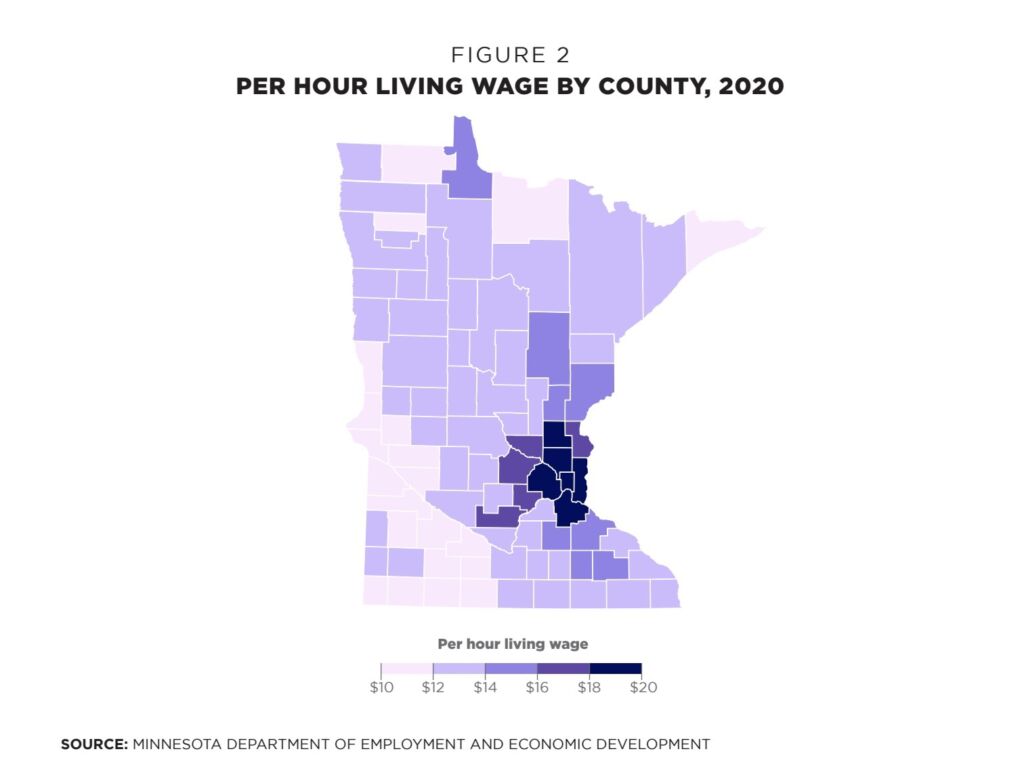Why legislators should abolish the state minimum wage law
The value of a dollar is what it can buy you. And what a dollar can buy you in Minnesota depends on where you live in the state. According to the Minnesota Department of Employment and Economic Development (DEED), in 2020, a family of two parents –– both working full-time –– and one child living in Cook County had to earn $11.10 per hour to afford basic needs. However, the same family needed to earn $18.80 an hour to afford basic needs if living in Hennepin County.

In low-cost regions like Cook County, a dollar is worth much more compared to the metro region, where the cost of living is much higher. These differences in purchasing power mean that the true value of Minneapolis’ $15 minimum wage, or better yet, the state’s $10.33 minimum wage –– adjusted to account for the cost of living –– is much higher in greater Minnesota.
The statewide minimum wage places the same level of burden regardless of these differences. This raises labor costs disproportionately for businesses in greater Minnesota compared to those in the metro area. Consequently, a disproportionate number of workers are priced out of the labor force.
Certainly, high-wage, high-cost areas are not immune from the destructive effects of minimum wage laws. Just recently, for example, the Federal Reserve Bank of Minneapolis published two studies showing that minimum wage hikes in the Twin Cities led to job losses.
Differences in cost of living just mean that these costs are merely multiplied manyfold when it comes to low-cost, low-wage areas.
If not preemption, legislators should abolish the state minimum wage law
More than half of states prohibit localities from enacting regional minimum wage laws –– preemption. In Minnesota, similar efforts have been tried. However, opponents of the preemption claim that it takes away an important tool for high-cost areas to address the needs of their workers.
Ironically, these opponents of preemption support the state minimum wage law. The state minimum wage law, however, acts similarly to preemption. It overrides the power of local lawmakers and fails to account for differences in the cost of living. So, opponents of preemption ought to support abolishing the state law. It imposes disproportionate costs on low-cost, low-wage regions of the state.
Differences in the cost of living matter
If the cost of living makes it necessary for high-cost localities to make their own local minimum wage laws, then low-cost localities should not be bound by Minnesota’s high minimum wage on the account of their relatively low cost of living.
The statewide minimum wage law fails to consider local economic differences and imposes disproportionate costs on small businesses as well as low-skilled workers in low-income, low-cost regions of the state. It should be abolished.